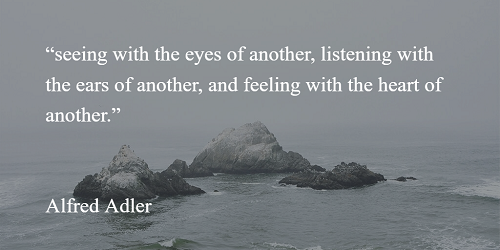Over the holidays, I was back home visiting my parents in St. Louis. As I was driving back to my mom’s house after the gym one afternoon, a dog darted out in front of my car. I slammed on my breaks, pulled my car over to the side, and got out. I looked around for someone who might own a dog, but didn’t see anyone. I chased after the dog on foot for a bit, and after a lot of calling, coaxing, and using the highest register of my voice, I finally caught him.
No collar, no tags. Dang it!
So, I scooped him up, walked back to my car, and stuck him in the backseat. I drove to my mom’s house to see what she suggested, and for the next 2 1/2 hours, we drove around searching for someone looking for a lost dog, looking for lost dog signs, calling shelters, and stopping at a local vet’s office to see if he was chipped. Finally, finally, finally…. my mom spotted a man driving around in circles – he was clearly looking for something! The look on his face when I walked up to him with his adorable sheltie in my arms was priceless. And Bailey (the dog’s name, we discovered) was clearly happy to be reunited with his person.

What in the world does this lost dog story have to do with community? The entire time I was running down the street chasing the dog and driving around in circles, all I could think about was how worried the owner probably was. If my dog were lost, I’d be worried sick, driving all over the neighborhood, calling every shelter in the area, and likely on the verge of tears. I’d be overwhelmed with fears of my dog getting hit by a car, wandering too far, encountering wildlife…. who knows what could happen?! I would think, I would feel, I would want….
The ability to put yourself in someone else’s shoes is a key quality of every community manager (and truthfully – it’s a key quality in LIFE). Why? Because empathetic people enjoy helping others. They’re good listeners. They’re patient. They’re humble. They make you feel valued. They find a way to relate to others, even when it’s a challenge.
Nearly everyone I know has at least a smidge of empathy in their bones – some more than others. But even those who have an innate sense of empathy have to consistently put this skill to use. After all, practice makes perfect, and perfecting this skill will not only make you a better team member, but it will also make you a better partner, friend, sibling, son or daughter, and member of society.
Put Yourself In Their Shoes
What if you were feeling panicked, scared, upset, dissatisfied, cheated, confused, or frustrated? You may not understand exactly what your customer or community member is experiencing – in fact, you probably don’t – but you may have had similar feelings in a different situation. And in that situation, wouldn’t it be wonderful to encounter someone who cared, have an opportunity to explain, and actually be heard? It’s almost as if we’re surprised when that happens, when actually – that’s what customer service SHOULD be. I strive to help people, because those who have helped me have made a huge impact on me.
Practice Listening
Don’t just hear. LISTEN. Don’t anticipate what the customer or community member is going to say, and don’t finish their sentences. Don’t mold their message to fit your strategy, or form your response before they’re finished. Avoid distractions, listen to what they’re saying, and focus on their concerns.

Have you read Stephen Covey’s book, The 7 Habits of Highly Effective People? His 5th habit is “Seek first to understand then to be understood.” According to Covey, there are 4 stages to to empathic listening, each building on the previous:
1. Mimic – Repeat what the other person said to let the customer know you’re listening. It’s objective and straightforward.
2. Rephrase – Rephrase their comments in your own words to that you let them know you understand.
3. Reflect – Focus on the emotions behind what they’re saying. How are they feeling?
4. Rephrase and Reflect – Combine steps 2 and 3. This shows you are really listening. How did the actions affect their emotions?
Patience Is A Virtue

I have an aunt with the patience of a saint. She never loses her cool, she never seems to be flustered or angry, and her voice is one of the most soothing sounds in the world. I look to her as an example often in life when it comes to patience. Customer-facing roles are best filled with someone who’s calm and collect, while simultaneously showing urgency for the customer’s issue. It’s easy to get impatient when you’ve heard the same complaint 43 times, but keep in mind – this is the first time THEY’VE experienced it.
Respond With Compassion
When it’s your turn to speak, offer validation and get on their wavelength (mimicing). Ask specific questions, and identify the problem and how it’s making them feel. What needs to be done to reach a beneficial outcome? If you don’t have the answer or solution, let them know what you’ll do next, and when you’ll be in touch. Use a warm tone, and be the person they want to come back to. Remember that when it’s the most difficult to respond this way, it’s the biggest opportunity to make a lasting impression. Community and customer service managers have the power to turn an unhappy person into a brand champion.
* * * * *
Empathy isn’t just for the community and customers – it’s also for your colleagues! Empathy for your coworkers can create a safe environment, which inspires people to get creative, opens doors, and ultimately, leads to better customer service! Win-win.
In what ways have you shown empathy? What suggestions do you have for empathic listening?





